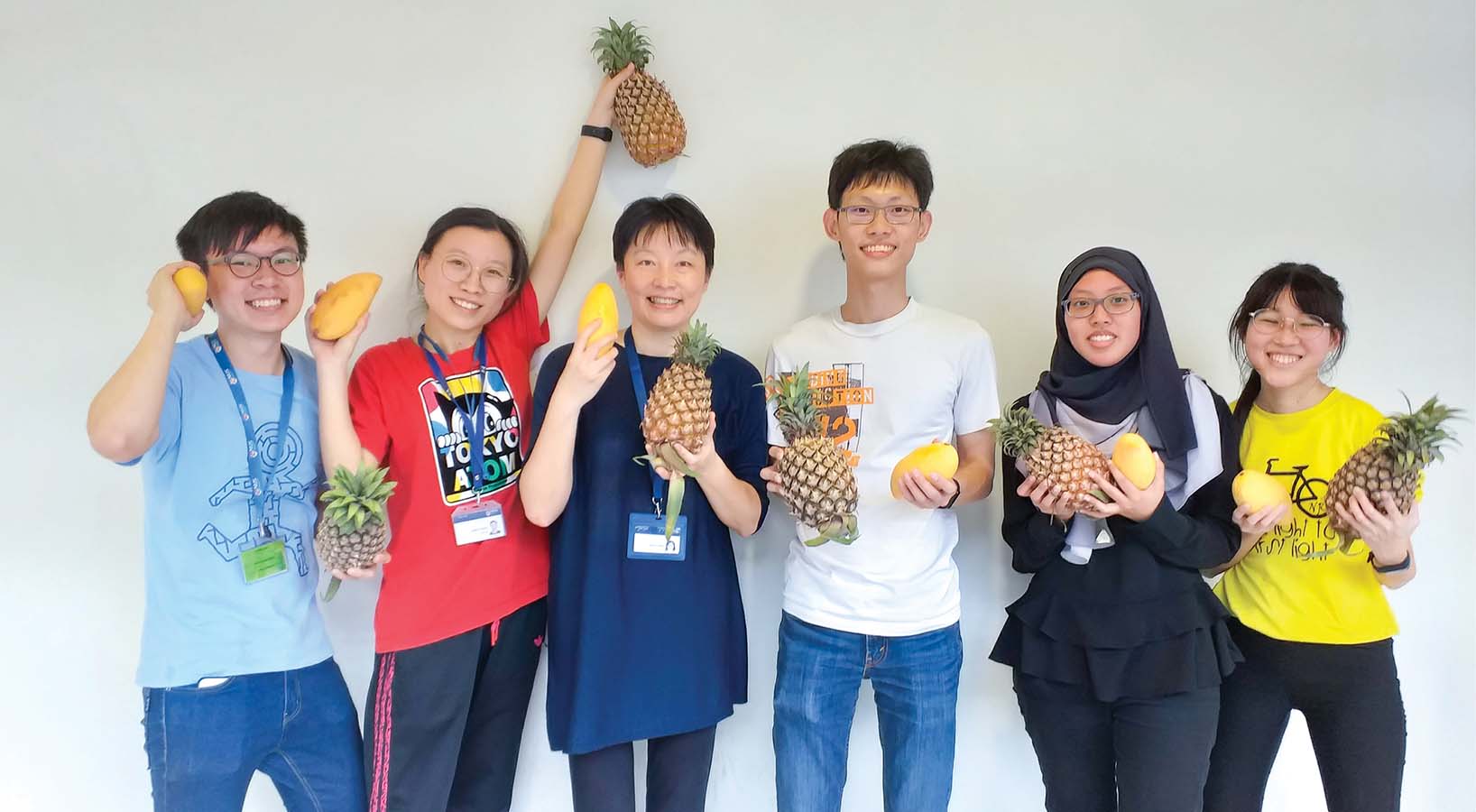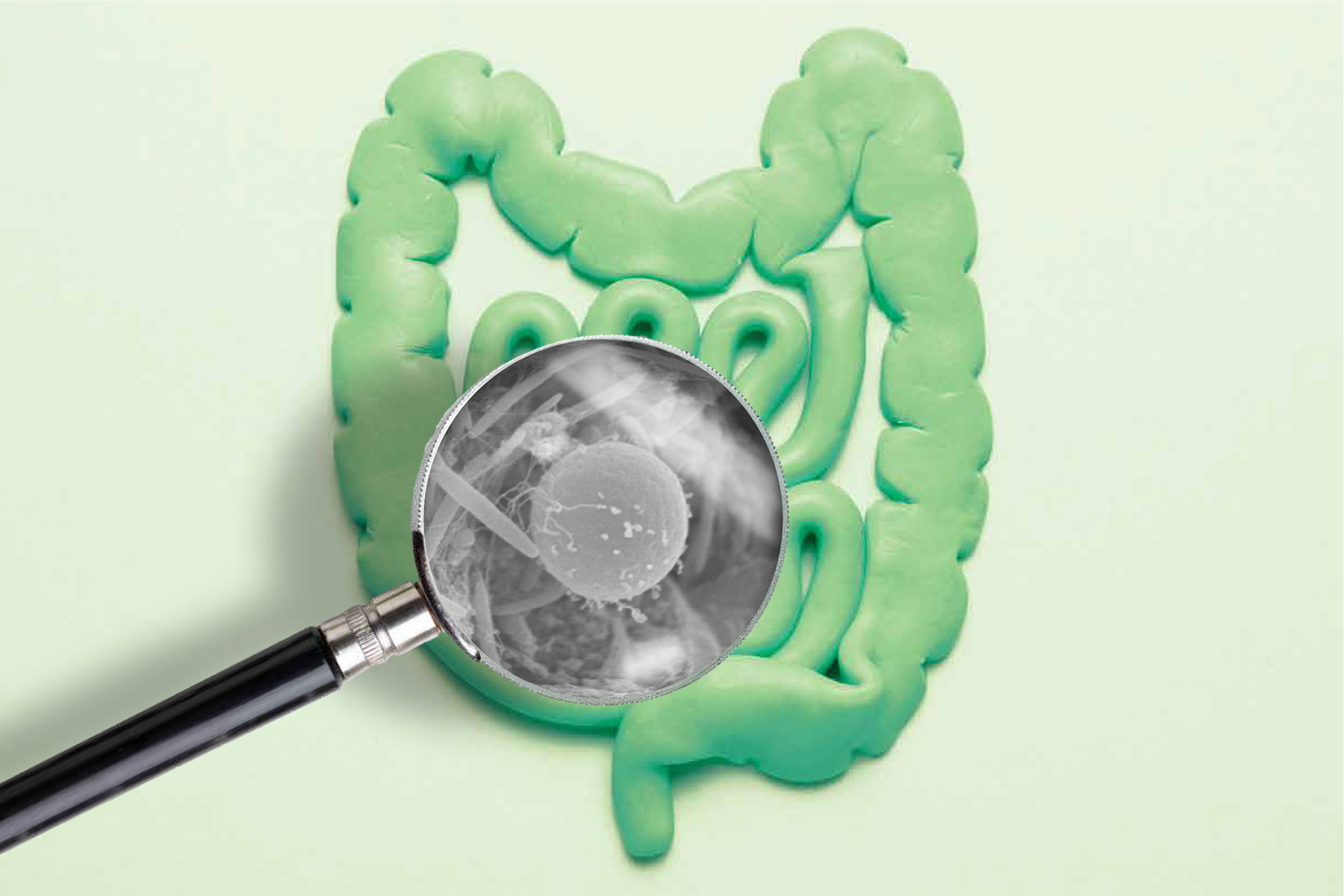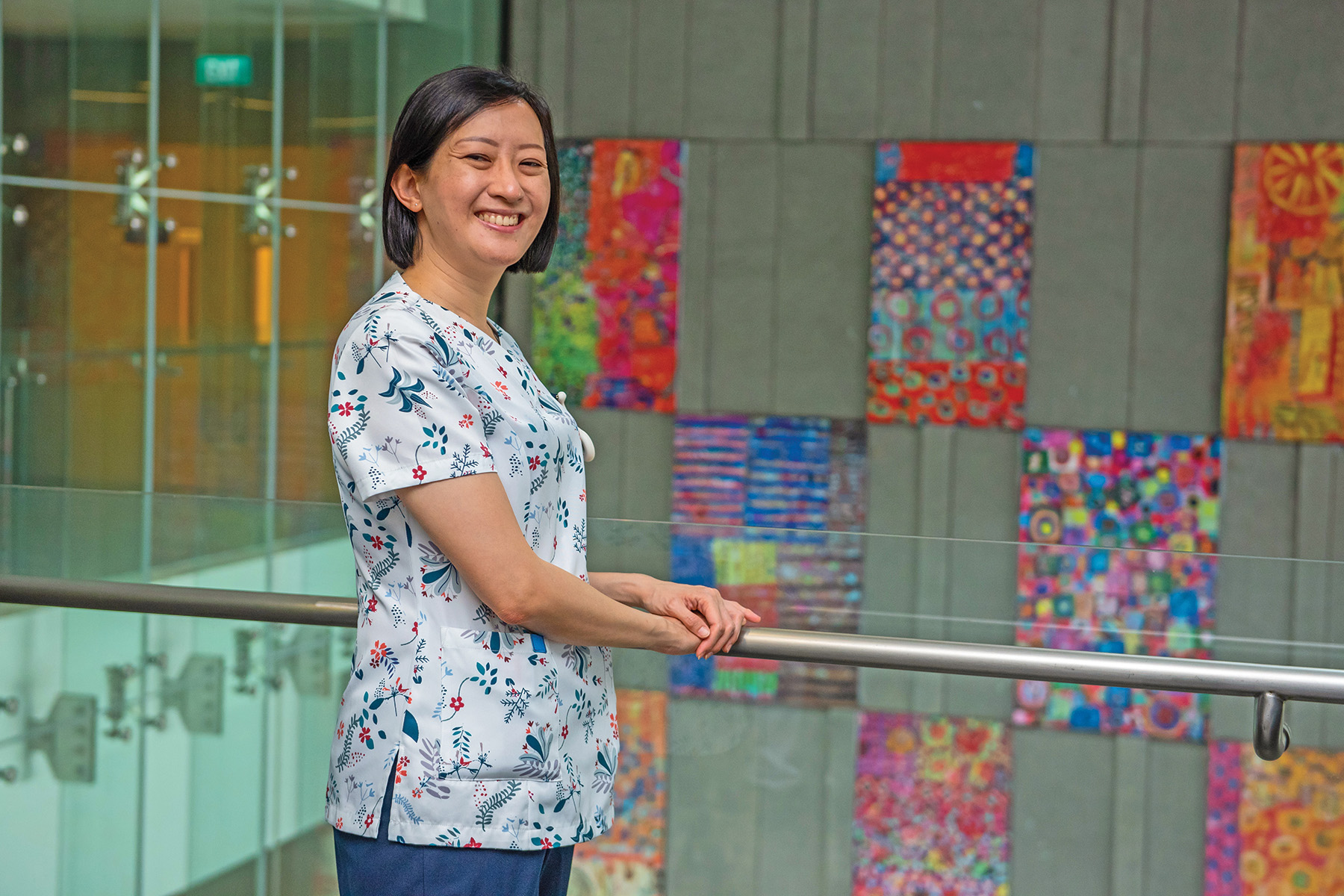
Issue 43 / August 2022
IN VIVO
A Medical Educator’s Personal Journey

By Associate Professor Liu Haiyan, Department of Microbiology and Immunology
I was raised by my grandmother. She was a primary school teacher who loved her job so much that the ideal job she planned for me was to be a teacher working with kids. However, I decided to study Medicine and continued on to a PhD in biomedical research.
or a very long time, I felt that I was going away from the path that my grandmother had wished for me. In recent years however, I realise that deep inside, I am still that little girl who loved her grandma’s classroom and wished to be just like her.
When I established my independent research programme in a medical school 15 years ago, I was asked to teach undergraduate and graduate students. Without any formal training, I dived right in. For quite a while, I taught what I thought should be taught. I thought I knew what the students needed to learn and how they would learn in my subject domain. A few years later, I reflected on what defines a great educator and came to realise that a great educator supports and inspires lifelong learning in the students, who grow to become better human beings.
“I am very grateful for the opportunity to join the Certificate Programme in Medical and Health Professions Education, and subsequently to become a mentor for Young Biomedical Science Educators Programme organised by the Centre for Medical Education at NUS Medicine. This learning and mentoring experience enhanced my understanding and skills as a medical and health professions’ educator and equipped me with tools and resources for my own development.”
I thus strove to develop a student-centred teaching philosophy that would facilitate student learning and development. I understand that students learn well when they are curious about and interested in the topics, when they are motivated to solve challenging problems, and when they are inspired to take on self-motivated and lifelong learning. Therefore, my teaching practice focuses more on engaging students in the learning process, challenging them with questions and tasks to provoke deep learning and critical thinking, inspiring them to continue with their own learning even when the teaching is over.
I am very grateful for the opportunity to join the Certificate Programme in Medical and Health Professions Education, and subsequently to become a mentor for Young Biomedical Science Educators Programme organised by the Centre for Medical Education at NUS Medicine. This learning and mentoring experience enhanced my understanding and skills as a medical and health professions’ educator and equipped me with tools and resources for my own development. For example, according to the best evidence1 didactic lectures are not very effective at actively engaging students. Therefore, I incorporated other teaching pedagogies in the process, such as placing learning materials like pre-recorded lectures and pre-reading materials online before the lecture and encouraging the students to self-study. Then, I ask them to perform some tasks to evaluate their learning and provide them the opportunity to raise their questions and get feedback. During the interactive lectures, I engage students in discussions around the key concepts by asking some fundamental questions and providing real-life scenarios to provoke thinking and discussions. I also generate formative quizzes using Poll Everywhere and LumiNUS to engage every student and provide feedback to promote student learning according to the best practice2.
My research area is Cancer Immunology and Cancer Immunotherapy, a fast-growing field that has drawn a lot of interest from both academia and industry. Particularly, cellular therapy is a focus in the current development of novel immunotherapy strategies. There is a gap in the continuing education domain for learners who are keen to equip themselves, either to get ready for a career switch to cell therapy or to learn more about cell therapy and its applications. Together with the Advanced Cell Therapy and Research Institute Singapore (ACTRIS), the Department of Microbiology and Immunology developed a new professional certificate course to meet this need in Singapore.
“As an educator, I try to be a model for my students in the practice of lifelong learning. Joining the Coaching Certificate Programme and becoming a coach has not only had a great impact on my own life, but also provided me with a whole new set of tools and skills to help my students navigate their learning and their lives.”
As the course director, I worked with many colleagues from both ACTRIS and NUS to design the curriculum to fit the learning schedule of working professionals. We aim to help learners understand the functions of immune effector cells, with emphasis on Chimeric Antigen Receptor-T (CAR-T) cells, gain a better understanding of the regulation of immune effector cells and implications on the practice of cell therapy. The curriculum also familiarises course participants with the quality control and assurance aspects of manufacturing and applying cell-based therapeutics to patients, enables them to gain insights and acquire knowledge in the manufacturing of immune effector cells for cell therapy treatment, and be aware of the considerations involved in cell therapy clinical research.

Encouraged by the enthusiasm from the community, we are planning for a second run. Entering this continuing education domain, I strive to provide feedback to facilitate the learning process and construct an environment in which the students understand that I am open to their thoughts, eager to hear their opinions, and thrill to learn with them.
As an educator, I try to be a model for my students in the practice of lifelong learning. Joining the Coaching Certificate Programme and becoming a coach has not only had a great impact on my own life, but also provided me with a whole new set of tools and skills to help my students navigate their learning and their lives. I believe that every student has the capability to face challenges and tackle the issue in their learning journey. As their coach, I partner them to help them be the best of themselves.
My grandma passed away seven years ago. I often think of her and wonder if she would be happy with where I am now. Although I did not become a primary school teacher, I am making my impact in medical education and helping to shape the future generations of health professionals—inside and outside classrooms.
-
Michael J. Friedlander, Linda Andrews, Elizabeth G. Armstrong, Carol Aschenbrenner, Joseph S. Kass, Paul Ogden, Richard Schwartzstein, & Thomas R. Viggiano. (2011) What can medical education learn from the neurobiology of learning? Acad Med. 86:415–420.
-
John Norcini, Brownell Anderson, Valdes Bollela, Vanessa Burch, Manuel Joa˜ o Costa, Robert Duviver, Robert Galberith, Richard Hays, Athol Kent, Vanessa Perrott & Trudie Roberts. (2011) Criteria for good assessment: consensus statement and recommendations from the Ottawa 2010 Conference. Medical Teacher; 33: 206–214.




